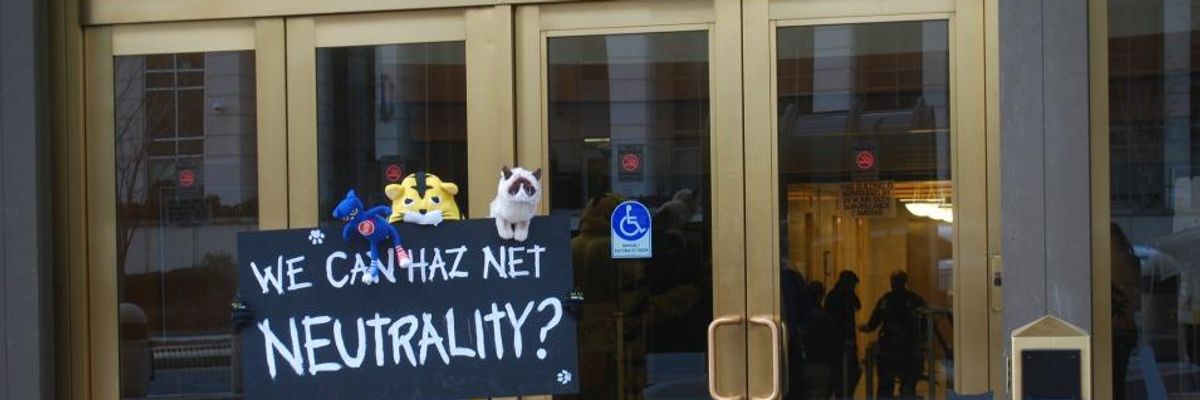Emails expressing opposition to the Obama administration's net neutrality rules may have been faked by a right-wing group led by a former policy and legislative strategist for the Koch Brothers-backed Americans for Prosperity, according to reporting by Politico.
The dark money group American Commitment, led by conservative operative Phil Kerpen, has advocated in favor of the Keystone XL pipeline and against the Affordable Care Act and efforts to decrease hazardous emissions from coal-fired plants. The organization also operates the website ALECpetition.com, which urges people to "reject anti-ALEC bullying."
"Faking the identities of people is no way to organize a popular campaign. But such underhanded tactics are typical of Net Neutrality opponents."
--Tim Karr, Free Press
On Monday, American Commitment claimed to have mobilized more than half a million people to send 1.6 million pre-written letters asking Congress to overturn the Federal Communications Commission's new net neutrality rules that reclassify the Internet as a public utility.
But according to Politico's senior technology reporter Tony Romm, "a number of messages to lawmakers purporting to be from average constituents...don't appear to have come from people within their districts."
Romm writes:
The flood of traffic seemed to raise some lawmakers' eyebrows, including Democratic Rep. Jackie Speier of California, whose office soon determined some of the messages had come from constituents who didn't recall sending them. Her aides pointed to a memo sent to members' staff last week by Lockheed Martin, which manages the technology behind some lawmakers' "contact me" Web pages. Lockheed initially said it had "some concerns regarding the messages," including the fact that "a vast majority of the emails do not appear to have a valid in-district address." In some cases, Lockheed also questioned the "legitimacy of the email address contact associated with the incoming message[s]."
... Speier's office noted the similar emails and then calculated that about 98 percent of the messages had come from constituents that her office had never heard from before. The congresswoman's team set about trying to reply to some senders, and a few of the constituents replied that they had never signed up to send emails criticizing net neutrality.
American Commitment denied any wrongdoing.
But that did little to placate Speier, who declared in a statement: "The idea that an outside group could use consumer data to impersonate constituents suggests an attempt to hijack the important feedback members of Congress need to truly represent their districts."
She continued: "This is identity theft, but instead of impersonating for financial gain, the originators of this theft are striking at the heart of our representative democracy."
For Free Press, which is leading the fight for an open Internet and net neutrality protections, the revelations are unsurprising.
"There's a relatively small community of organizations fighting against net neutrality," Free Press senior director of strategy Tim Karr said in a statement to Common Dreams. "Most have substantial financial ties to the phone and cable lobby and other monied interests. Few, including Kerpen's group, aren't willing to reveal these ties to the public."
Karr continued: "Over the years, this crowd has made several attempts to demonstrate genuine grassroots opposition to net neutrality and the open Internet. They routinely fail at this, as evidenced by American Commitment's latest 'astroturfing.'"
In the wake of the FCC's vote, Republicans and the anti-net neutrality lobby have launched what Politico previously described as "an all-out political offensive" aimed at undoing the commission's actions.
As that offensive unfolds, net neutrality supporters are likely to encounter similarly desperate moves, Karr said.
"Faking the identities of people is no way to organize a popular campaign," he said. "But such underhanded tactics are typical of net neutrality opponents. Theirs is largely a top-down effort, flowing from the coffers of powerful phone and cable companies and anti-democratic billionaires like the Koch brothers, who'd rather see control of the Internet in the hands of a few powerful elites."

